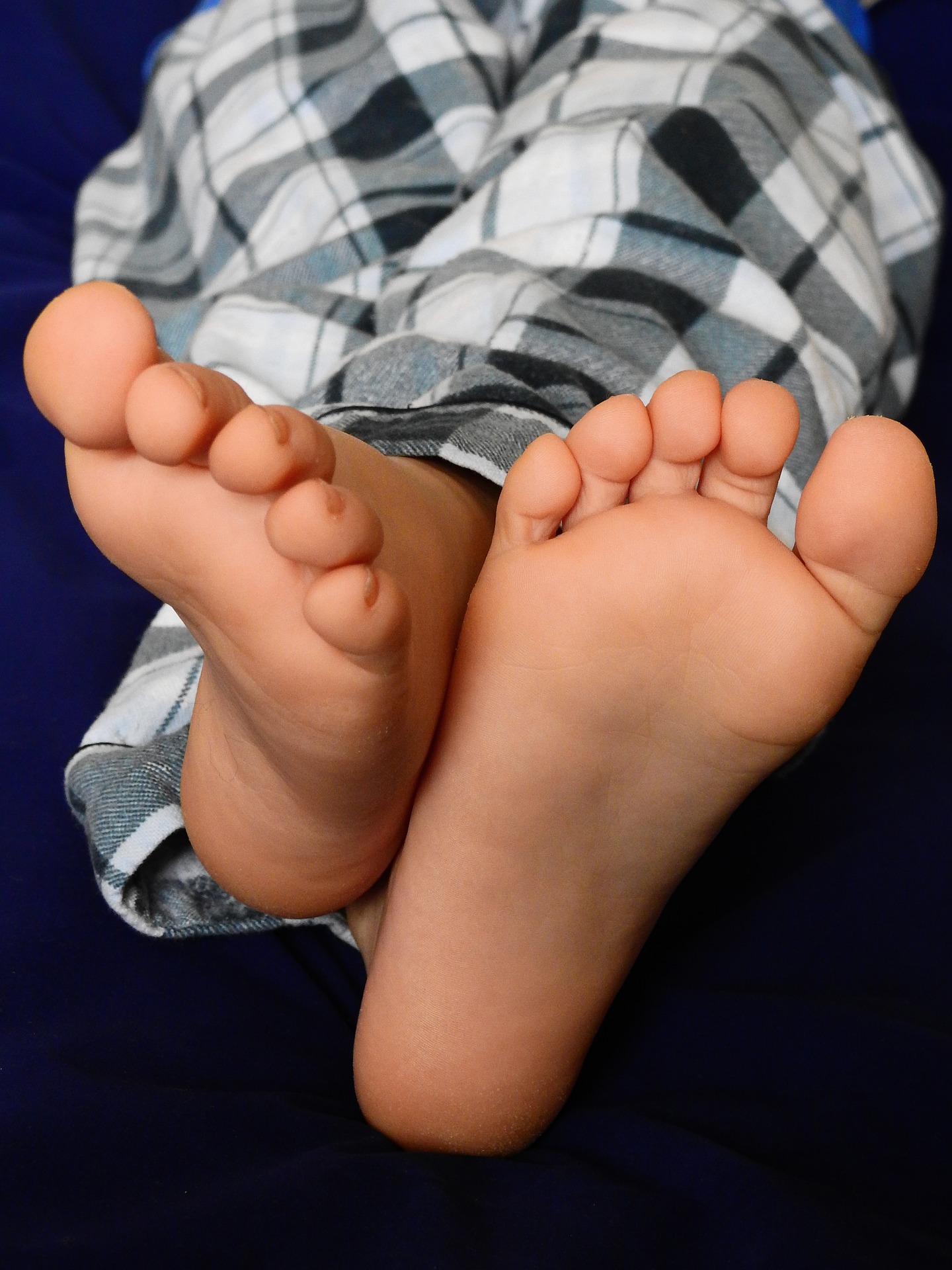Podiatry Foot Health Tips
Foot health is too important to be taken for granted, especially for those who suffer from diabetes or poor circulation.
As the saying goes ‘prevention is better than cure’. Whether you’re living with diabetes or not, the tips below will help you keep your feet healthy. Adhering to the following Foot Health tips will ensure you stay on your feet and are less likely to suffer more serious foot and general health complications so you ‘stay on your feet’.
1. Cut nails carefully, and always straight across
Trimming nails too short or tapering them at the edges often leads to ingrown toenails and potential infections. Filing your nails regularly instead of cutting them is also a good alternative to cutting.
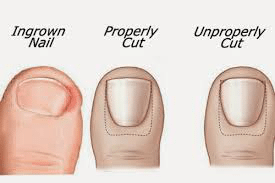
2. Be gentle when bathing your feet
Keeping your feet clean can prevent infection. Being gentle as you bathe them prevents unnecessary abrasions.
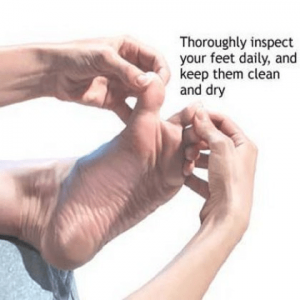
3. Inspect your feet daily
Check your feet for cuts, blisters, scratches, redness and swelling. Detecting these problems early can help prevent more serious complications later. Using a mirror to help your check the soles of your feet is a useful tip.
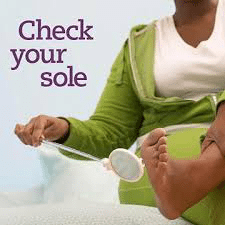
4. Moisturize your feet — but not between your toes
Moisturizing your feet will prevent dry skin, which is more likely to crack and become infected. Moisturizer trapped between your toes can breed fungus. Cracks, and fissures on heels are common and in severe cases lead to infection.
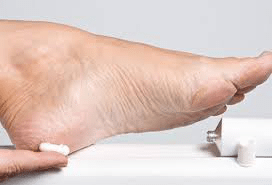
5. Never trim corns and calluses
Over-the-counter chemical agents and do-it-yourself corn and callous treatments can irritate the skin of your feet and lead to secondary, dangerous infections and wounds. See a Podiatrist to trim any corns or calluses you develop.
6. Wear clean, dry socks
Keeping your feet clean and dry is the first step to avoiding infection. Socks should be free of significant seams and stitching — and made of moisture-wicking materials. Dyes that bleed from sock fabric can cause infections in open wounds. These days socks made from with more natural materials such as cotton and bamboo are readily available and affordable. In some cases if and where you are included to perspire or sweat profusely and be in enclosed shoes for long periods at a time (ie. Workboots) then you are advised to change your socks half way through the day to reduce risk of skin infection and foot odour.
7. Avoid loose or tight fitting socks
Socks that are too loose can cause friction inside your shoes, which can lead to blisters and other irritations. Socks that are too tight around the lower leg especially can restrict blood circulation. In some cases, were fluid retention and lymphodema exists the use of compression and surgical hosiery is recommended.
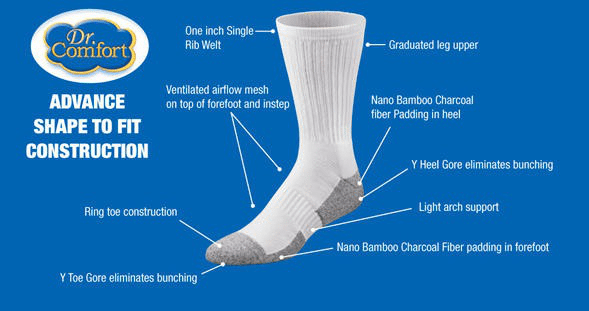
8. Wear socks to bed
Wearing clean, comfortable socks to bed is the best way to keep your feet warm at night. Never use a heating pad or hot water bottle and avoid exposing your feet to sudden temperature extremes.
9. Shake out and inspect the inside of your shoes
Always be sure the inside of your shoes are free of irritants and loose debris that might irritate your feet.
10. Keep your feet dry
Fungus and infections thrive in moist environments. Keeping your feet dry, especially between your toes, will protect them from conditions as athlete’s foot. In some cases using regular use of an alcohol based spray, will help prevent infections and control excessive perspiration and foot odour. Moist, wet, split skin can often lead to more serious complications such as infections and wounds.
11. Never walk barefoot
Shoes and slippers are a simple way to protect your foot from bumps and bruises that can turn into more worrisome complications. Often people with compromised circulation and sensation suffer from ‘neuropathy’ or lack of feeling in their feet and wont realise when they cut their feet or walk on sharp or burning hot surfaces and therefore be more prone to damage and injury when not wearing protective footwear.
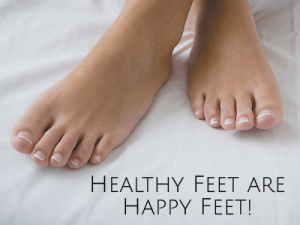
12. Don’t smoke
Smoking impairs blood circulation. Maintaining healthy blood circulation to their extremities is key to preventing amputation due to conditions such as gangrene for people with diabetes.
13. Take care of your diabetes
Responsible diabetes management will reduce your chances of developing the complications that can lead to amputation.
14. Wear appropriate and well fitted, supportive footwear
Wearing well fitted and properly fitted footwear will ensure you are less likely to suffer from conditions such as corns, calluses, bunions, hammer toes and wounds associated with pressure, friction and rubbing. Appropriate fitting and supportive footwear will also minimise risk of trips and falls. In the case of existing foot deformities you are advised and may need to consider being assessed and guided by your Podiatrist to being fitted Medical Grade Footwear and perhaps some Custom Footwear Modifications to suite your individual needs.
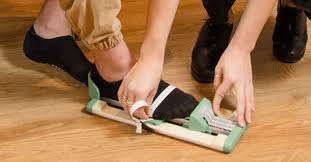
15. Get periodic foot exams
Visit you Podiatrist if you’re experiencing symptoms or you have any questions at all about the health of your feet. Your podiatrist will recommend how often you should have follow-up appointments. If you suffer from diabetes or compromised circulation to your feet you should see you Podiatrist annually.
Need more great advice?
If you suffer from diabetes or any foot health concerns, we strongly encourage you to see one of highly qualified FAAC Podiatrists to ensure all of your foot health needs are properly addressed.
At the Foot and Ankle Clinic our highly qualified team of Podiatrists are all members of the Australian Podiatry Association and offer a combined 50 years’ experience. They are trained to diagnose and effectively treat various foot health issues via a range of treatments.
Put your feet in our hands! See us today in Chadstone, Moe, Sale, Traralgon, Warragul & Online Store and Retail Enquiries. NO REFERRAL NEEDED!.

